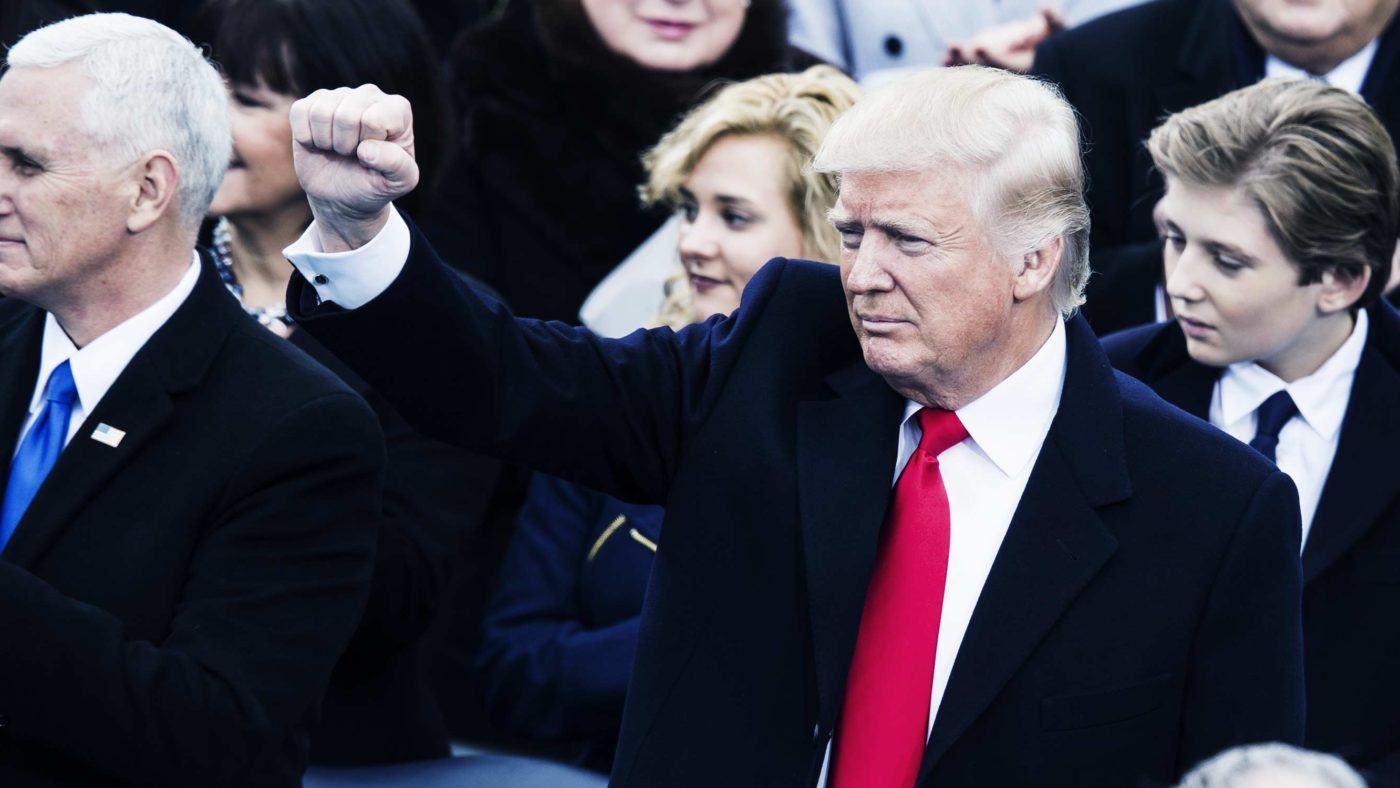This article is adapted from CapX’s Weekly Briefing email. Sign up here.
A confession: this isn’t the article I intended to write.
I spent the Christmas period devouring Ron Chernow’s Pulitzer Prize-winning biography of George Washington. The plan was to mark the inauguration of America’s most recent President with a comparison to its first.
I had lots of cute little concordances noted – for example, that where Trump promised to “drain the swamp”. Washington actually formed a company for the purpose. He was one of 10 members of the “Adventurers for Draining the Dismal Swamp”, a gang of property speculators who hoped to turn south-east Virginia into fertile farmland.
I also had a pointed conclusion: that Washington was defined by his lifelong struggle to subordinate his passions to an iron self-control, whereas Trump is defined by precisely the opposite. (And that in that sense, he very much reflects the spirit of the age.)
But then Donald John Trump stood up and accepted the office of 45th President of the United States with a speech that contained an explicit paean to protectionism.
“From this day forward,” he announced, “it’s going to be only America first. America first. Every decision on trade, on taxes, on immigration, on foreign affairs will be made to benefit American workers and American families. We must protect our borders from the ravages of other countries making our product, stealing our companies and destroying our jobs. Protection will lead to great prosperity and strength.”
Even without “America first”, and its rhetorical echo of the ugly nativism of the 1930s, this would have been deeply disturbing.
One of Trump’s worst habits, as has been noted before, is his habit to agree with whoever he’s been talking to last: hence the way he emerged from a meeting with Obama enthusing that about key aspects of the healthcare system he’d promised to destroy.
But another is the fact that the ideas he does latch on to tend, in many instances, to be utterly unsupported by the evidence. Like the idea that there was massive voter fraud in November. Or that America’s inner cities are a grisly hellscape. Or, indeed, that there is some mystic link between vaccines and autism.
Healthy young child goes to doctor, gets pumped with massive shot of many vaccines, doesn't feel good and changes – AUTISM. Many such cases!
— Donald J. Trump (@realDonaldTrump) March 28, 2014
But his most damaging ideas of all are on trade.
When it comes to foreign policy, there are actually solid precedents for Trump’s transactional approach – although none, admittedly, since America assumed global leadership in the wake of the Second World War.
Washington himself justified his refusal to back France over Britain, despite the former’s vital support for the American Revolution, on the grounds that “the nation which indulges towards another an habitual hatred, or a habitual fondness, is in some degree a slave”.
But when it comes to trade, the precedents are only awful – not least the Smoot-Hawley Act, of which Trump seems blissfully unaware. (And if you are too, I urge you to follow that link.)
Washington, too, saw the traditional livelihoods of Americans being threatened. But he accepted that the economic future lay not with the slave planters of the South – despite them being his own class – but the hi-tech industrialists of the North.
And when it came to trade, he was quite equally clear-sighted. In his farewell address (actually a lengthy newspaper article), he wrote: “Harmony, liberal intercourse with all nations, are recommended by policy, humanity, and interest. But even our commercial policy should hold an equal and impartial hand; neither seeking nor granting exclusive favors or preferences”.
At CapX, our mission is to promote policies that lead to genuine mass prosperity. And the economic evidence is overwhelming that free trade is one such policy. Yes, it creates losers as well as winners.
But the kind of protectionism that Trump appears to crave creates even more – including the very people it is intended to help. Consumers pay more for goods. Less wealth is created. The arteries of exchange, of innovation, of prosperity, become choked.
To her great credit, Theresa May grasps these truths – hence her refashioning of Brexit this week as a chance for Britain to turn its face to the world. To his great discredit, Donald Trump does not. (Although there are any number of CapX articles that could enlighten him.)
In that farewell address, America’s first President expressed his faith “that the good sense of our countrymen will guard the public weal… and that, although we may be a little wrong now and then, we shall return to the right path with more avidity”.
On many issues, Donald Trump has yet to choose his path. But on trade, it is crystal clear that he is going down the wrong one.


